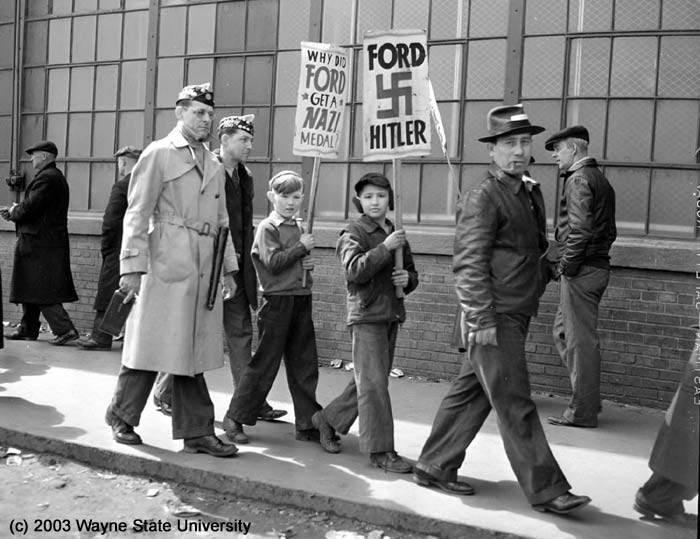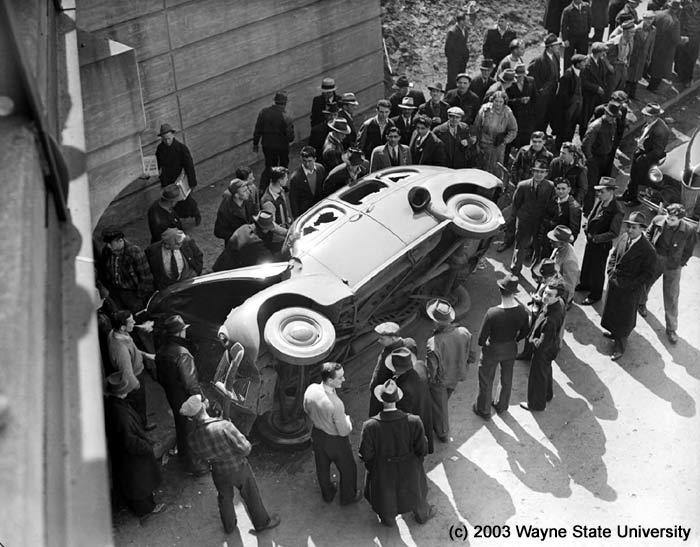1941 Strike at River Rouge Plant
In 1941, Ford Motor Company remained the last major auto company to refuse to recognize the UAW or any union as the bargaining agent for its workers. The UAW had already signed contracts with General Motors and Chrysler, but Henry Ford remained opposed to unionization. Nonetheless, organizing did go on in the Rouge Plant and many workers did sign up. In April 1941, Ford’s head of security, Harry Bennett, reputedly fired eight union members. The labor force as a whole walked out in a wildcat strike, blockading the plant. A few workers loyal to Henry Ford, remained inside the plant. They, along with additional strikebreakers, were paid $1 per hour for their time even though no work was done. The union kept up the pressure for ten days, at the end of which Henry Ford, urged by his wife, Clara, capitulated, making concessions beyond union demands. He agreed that Ford Motor would be a closed shop, meaning all employees had to be union members, and that it would initiate a “dues check-off” provision, which would allow union dues to be deducted from payroll and sent directly to the union.

Ford workers and their children picket in April, 1941, with signs comparing Ford to Adolf Hitler (above). The strike at times became violent (below).
